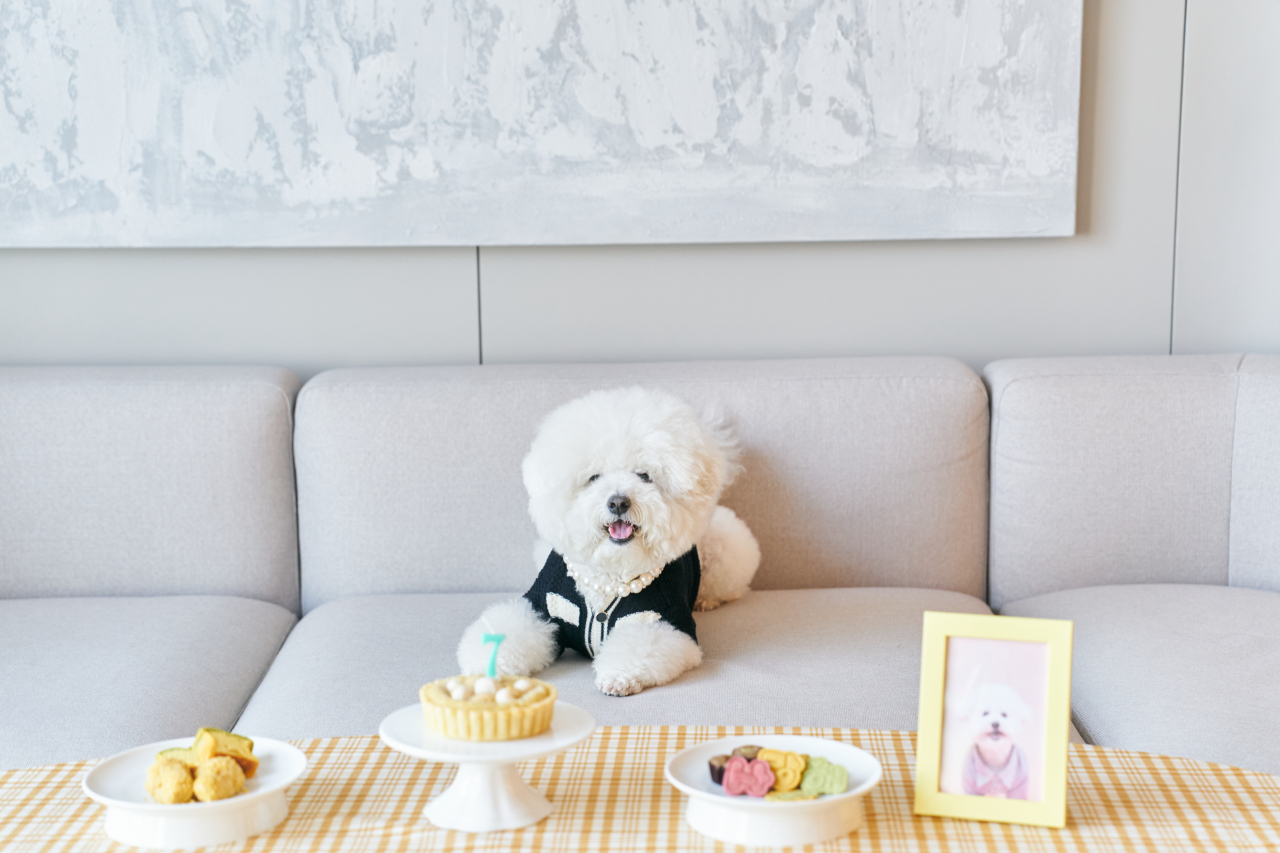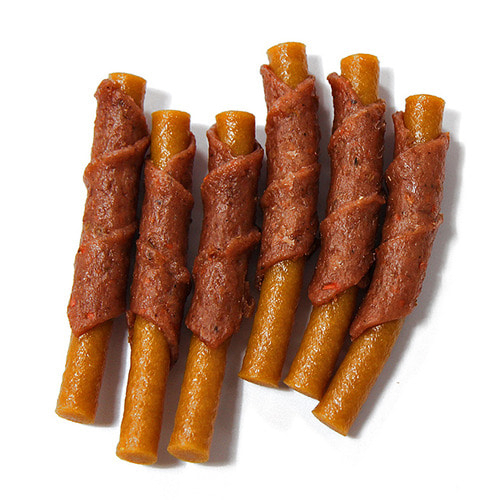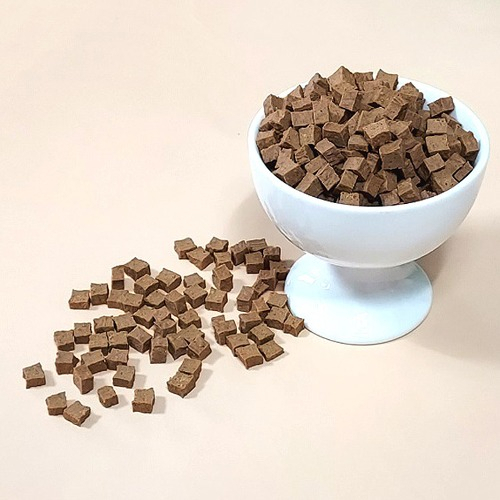 |
(Getty images) |
Looking after a dog used to just mean taking it for a walk, providing necessary care and building a bond, while feeding the canine store-bought kibble, perhaps with an occasional canned treat.
But increasingly, pet owners are ditching factory-produced pet food and feeding their furry companions real food -- either cooked at home or prepared by a professional chef.
A 30-year-old cat owner living in Seoul, Jung recently enrolled in a one-day pet food cooking class at a local pet food retailer, seeking to expand her cat's menu beyond basic treats.
She said she learned to craft a special cat tart featuring ingredients like chicken breast, rice flour, lactose-free milk and cottage cheese.
"Cooking it is a whole new level compared to making simple air-dried treats" that she had tried doing before, the woman said.
Twenty-eight-year-old Park Yu-min, who owns a 9-year-old dog, has so far referred to blogs, pet food recipe books and YouTube tutorials. She started preparing homemade meals after her dog showed allergic reactions to many store-bought treats.
"I decided to be more careful about her diet to ensure optimal well-being," the pet owner said, listing her dog's favorite foods: pumpkin cookies, blueberry milk chews and dehydrated chicken breast.
As Park delves deeper into pet food cooking, she thinks simply finding information online might not be enough. “Down the line, I wouldn't mind attending in-person classes to learn more special cooking skills," she said.
Park also expressed a loss of trust in commercially produced pet food. Her decision to make her own food partly stems from anxieties about the potential health risks associated with pet food made by domestic manufacturers.
The Yuseong-gu Office in Daejeon has launched a series of 10 one-day pet cooking classes that are now ongoing, from May to October, for the first time this year. Each class has 10 participating students and focuses on creating diverse pet treats such as cookies, rice balls and pound cake.
“Most participants have been health-conscious female owners in their 30s and 40s, who consider their pets to be family members,” a Yeonsu-gu district official surnamed Oh told The Korea Herald.
Depending on the success of the first series, the district office is considering opening larger-scale classes in the future, the official added.
Pet owners interested in preparing real food for their furry friends share a common concern: a loss of trust in commercially produced pet food. Their anxiety about the safety of factory-processed pet food products has been amplified by the recent unexplained deaths of hundreds of cats in Korea.
While authorities have reportedly found no confirmed link between the deaths and pet food products they were fed, cat owners suspect that a specific local producer is behind the wave of cat deaths, which totaled 206 as of May 27.
 |
"Homemade-style" dog treats made primarily from sweet potatoes and duck meat, according to the manufacturer (Achimae) |
Certified 'homemade'
On the business side, growing interest in healthy pet food is also spawning new career and business opportunities, as reflected in the sales figures of homemade pet treats from aboutPet, GS Retail's pet product retailer subsidiary, with sales surging 214.7 percent on-year during the first half of 2023.
Kim Min-ha, a 26-year-old Seoul resident, is one pet owner conscious of providing her pet balanced meals, and thus has turned to sellers specializing in "homemade-style" treats and meals.
"I prefer dog food made in a certified kitchen by chefs using high-quality ingredients, rather than feeding mass-produced dry dog kibble with unknown food additives and preservatives," Kim explained.
Despite the absence of a national pet food specialist certification, many individuals are seeking credentials from private institutions like the Korea Companion Animal Industry Development Institute, the Korea Pet Food Educational Development Institute and the Korea Healthy Companion Animal Association.
These institutions, approved by the Korea Research Institute for Vocational Education and Training, provide pet food-related courses and issue relevant private qualification certificates under such titles as “pet food stylist,” “pet food manager” and “pet food master.”
One such institution is the Korea Occupation Ability Association, a private educational institution, providing a “pet food stylist” course that leads to a KRIVEIT-approved private certificate. Offering a range of options for homemade pet food enthusiasts, its 18-topic online program covers general pet food knowledge and gourmet treat creation.
While the institution lacks data on the exact number of aspiring pet food stylists, it has observed a surge in interest in the sector.
"Most course participants aim to leverage their certificates for future careers in the pet food industry," an official from KOAA explained. "While local government policies determine whether a related certificate is mandatory for starting a pet food business, some individuals still pursue the certificate as a marketing tool."
Yet, according to industry officials, going through registration procedures with provincial governments -- an indispensable step to opening a pet food business -- is much more crucial than obtaining certificates in pet food styling.
"Becoming an officially registered pet food retailer is the primary guarantee of safe and sanitary production," an official from Achimae, a local manufacturer and retailer of pet food marketed as "homemade-style," shared with The Korea Herald, highlighting that its made-to-order pet food production system has earned the trust of many consumers.
The official further underscored the need for clear communication regarding product information for consumers, as most pet owners “feel reassured knowing not only the detailed ingredient information, but also that they are feeding their pets food made from high-quality ingredients."
 |
"Homemade-style" dog kibble designed to promote stomach and intestinal health, according to the manufacturer (Achimae) |
 |
(Getty Images) |







